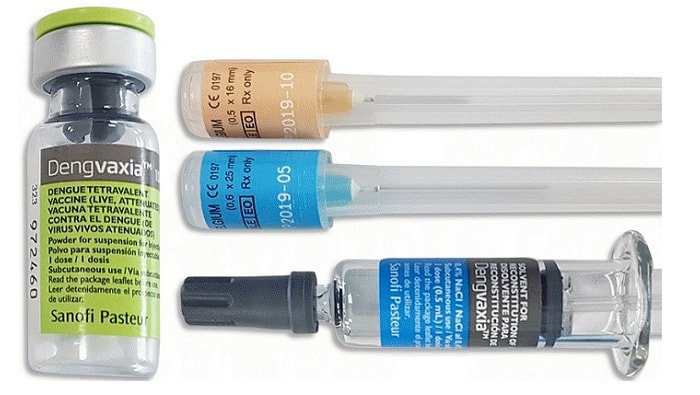Use of Sanofi’s dengue vaccine, the world’s first approved shot against the mosquito-borne virus, is to be strictly limited due to evidence it can worsen the disease in people who have not previously been exposed to the infection. The French drugmaker said in a statement on Wednesday that as a result it would book a charge in its fourth-quarter results of around 100 million euros ($118.57 million).
Sanofi said it was writing to national regulatory agencies proposing that vaccination should not be recommended for individuals who have not been previously infected by dengue virus.
This follows new analysis from six years of clinical data showing that Dengvaxia vaccine provides persistent protective benefit against dengue fever in those who had prior infection.
But for those not previously infected by the virus, more cases of severe disease could occur in the long term following vaccination upon a subsequent dengue infection, Sanofi said.
The company initially had high hopes for its dengue vaccine, touting it as a potential $1-billion-a-year-plus product, but initial sales last year were only 55 million euros and industry analysts have been dialing back expectations.
Current consensus analyst forecasts point to annual sales of around 360 million euros for Dengvaxia by 2022, Thomson Reuters data shows.
Although dengue is not as serious as malaria, it is spreading rapidly in many parts of the world. The virus kills about 20,000 people a year and infects hundreds of millions.
While Sanofi’s Dengvaxia is the first-ever approved vaccine for dengue, scientists already recognized it was not perfect and did not protect equally against the four different types of the virus in clinical tests.
Japan’s Takeda Pharmaceutical is developing a rival vaccine it hopes will perform better.
Sanofi said the announcement was not affecting its full-year guidance of broadly stable earnings per share at constant exchange rates.



















